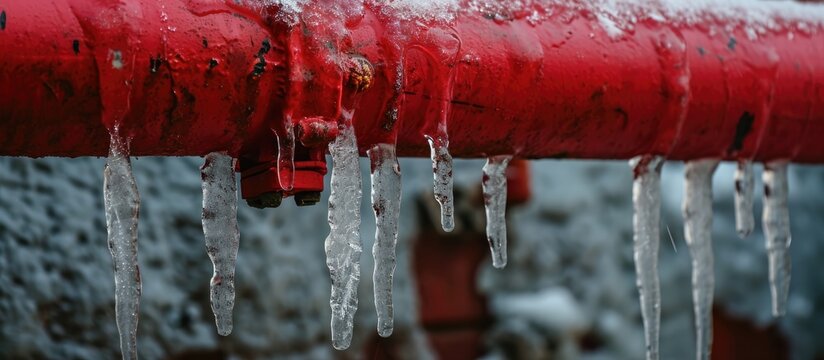Shielding Pipes from Cold Weather Issues: Essential Approaches
Shielding Pipes from Cold Weather Issues: Essential Approaches
Blog Article
Are you currently in search of tips around Winter Plumbing Precautions: Preventing Frozen Pipes?

Cold weather can ruin your plumbing, particularly by freezing pipelines. Here's just how to avoid it from taking place and what to do if it does.
Intro
As temperature levels drop, the danger of icy pipes boosts, possibly leading to expensive fixings and water damages. Understanding just how to prevent icy pipes is crucial for home owners in cold climates.
Prevention Tips
Insulating at risk pipes
Wrap pipes in insulation sleeves or use heat tape to secure them from freezing temperature levels. Concentrate on pipes in unheated or outside locations of the home.
Heating methods
Keep indoor areas adequately warmed, specifically areas with plumbing. Open up cupboard doors to allow cozy air to flow around pipes under sinks.
Just how to determine frozen pipelines
Look for reduced water flow from taps, unusual odors or sounds from pipes, and noticeable frost on exposed pipelines.
Long-Term Solutions
Structural modifications
Take into consideration rerouting pipes away from outside walls or unheated areas. Include added insulation to attics, cellars, and crawl spaces.
Updating insulation
Invest in premium insulation for pipelines, attic rooms, and wall surfaces. Correct insulation aids maintain consistent temperatures and decreases the risk of frozen pipelines.
Shielding Exterior Pipes
Garden hose pipes and outside taps
Separate and drain garden hoses before winter season. Mount frost-proof faucets or cover exterior faucets with shielded caps.
Recognizing Icy Pipes
What triggers pipes to ice up?
Pipelines freeze when exposed to temperatures below 32 ° F (0 ° C) for extended periods. As water inside the pipelines ices up, it expands, putting pressure on the pipeline walls and possibly creating them to break.
Risks and damages
Frozen pipelines can result in water interruptions, residential or commercial property damage, and costly repair services. Burst pipelines can flooding homes and cause extensive structural damages.
Signs of Frozen Water Lines
Determining icy pipelines early can prevent them from bursting.
What to Do If Your Pipes Freeze
Immediate activities to take
If you suspect icy pipes, maintain taps open up to relieve pressure as the ice melts. Utilize a hairdryer or towels soaked in warm water to thaw pipelines gradually.
Conclusion
Stopping icy pipelines calls for aggressive measures and fast responses. By understanding the causes, indicators, and preventive measures, property owners can protect their pipes during winter.
Helpful Tips to Prevent Frozen Pipes this Winter
UNDERSTANDING THE BASICS: WHY PIPES FREEZE AND WHY IT’S A PROBLEM
Water freezing inside pipes is common during the winter months, but understanding why pipes freeze, and the potential problems it can cause is crucial in preventing such incidents. This section will delve into the basics of why pipes freeze and the associated problems that may arise.
THE SCIENCE BEHIND FROZEN PIPES
When water reaches freezing temperatures, it undergoes a physical transformation and solidifies into ice. This expansion of water as it freezes is the primary reason pipes can burst. As the water inside the pipe freezes, it expands, creating immense pressure on the walls. If the pressure becomes too great, the pipe can crack or rupture, leading to leaks and water damage.
FACTORS THAT CONTRIBUTE TO PIPE FREEZING
Low Temperatures: Extremely cold weather, especially below freezing, increases the risk of pipes freezing. Uninsulated or Poorly Insulated Pipes: Pipes located in unheated areas, such as basements, crawl spaces, or attics, are more prone to freezing. Insufficient insulation or lack of insulation altogether exacerbates the problem. Exterior Wall Exposure: Pipes running along exterior walls are susceptible to freezing as they encounter colder temperatures outside. Lack of Heating or Temperature Regulation: Inadequate heating or inconsistent temperature control in your home can contribute to frozen pipes. PROBLEMS CAUSED BY FROZEN PIPES
- Pipe Bursting: As mentioned earlier, the expansion of water as it freezes can cause pipes to burst, resulting in significant water damage.
- Water Damage: When pipes burst, it can lead to flooding and water damage to your property, including walls, ceilings, flooring, and personal belongings.
- Structural Damage: Prolonged exposure to water from burst pipes can compromise the structural integrity of your home, leading to costly repairs.
- Mold and Mildew Growth: Excess moisture from water damage can create a favorable environment for mold and mildew growth, posing health risks to occupants.
- Disrupted Water Supply: Frozen pipes can also result in a complete or partial loss of water supply until the issue is resolved.
WHY CERTAIN PIPES ARE MORE PRONE TO FREEZING
- Location: Pipes located in unheated or poorly insulated areas, such as basements, crawl spaces, attics, or exterior walls, are at higher risk of freezing.
- Exterior Pipes: Outdoor pipes, such as those used for irrigation or exposed plumbing, are particularly vulnerable to freezing as they are directly exposed to the elements.
- Supply Lines: Pipes that carry water from the main water supply into your home, including the main water line, are critical to protect as freezing in these lines can affect your entire plumbing system.
- Underground Pipes: Pipes buried underground, such as those connected to sprinkler systems or outdoor faucets, can be susceptible to freezing if not properly insulated.
https://busybusy.com/blog/helpful-tips-to-prevent-frozen-pipes-this-winter/

I ran across that article about How to prepare your home plumbing for winter weather when exploring the internet. For those who enjoyed reading our blog post kindly remember to pass it around. I treasure your readership.
View More Report this page